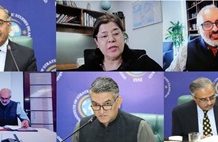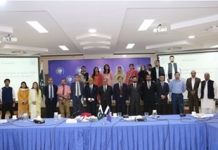Dr. Rasul Bakhsh Rais
Enduring leadership crisis
The recent lawyers' movement has revived our dead spirits and injected a new enthusiasm about claiming our country back from the syndicate of military...
Emerging national consensus
The military rulers and their subordinate class of civilian bureaucracy share an elitist view of politics and think that only they understand what is...
Elections are not the issue
No elections, with the marginal exception of 1970, have been free, fair, open or uncontroversial. Consequently, people in Pakistan have lost faith in one...
Democracy’s building blocks
True democracy rests on the principles of sharing power, working together in the public interest, dispersing powers widely among different institutions, and respecting the...
Democracy and American interests
The Americans and their local allies in our societies look more at the outcome of democracy than at its process. They are not comfortable...
Confrontation or reconciliation?
The political tide in Pakistan has turned decisively against the regime and in favour of the Sharif brothers. Sharif has been defiant so far...
Command and conciliation politics
The General, in a moment of personal agony over losing his job, must have given a thought to how history and Pakistanis remember other...
Clash doesn’t explain it all
While 'clash of civilisations' may provide a unifying theme in shaping Western responses to political Islam, it lacks the explanatory power to address the...
Civil society and democratic transition
The lawyers' associations are important, but are only one element in the overall struggle for democracy in Pakistan. They must gather the support of...
Citizens without a trace
In order to come clean on the subject of missing persons, which is of immediate concern to their families and society in general, the...







